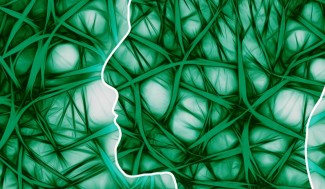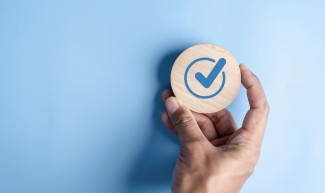Diagnosing Disorders of Consciousness (DoC) is difficult and requires robust and reliable tools. A study conducted by Denis Engemann (Inria, French national research institute for the digital sciences – CEA NeuroSpin) and Federico Raimondo (University of Buenos Aires/Sorbonne Université), directed by Jacobo Sitt, Inserm researcher at the Brain and Spine Institute (Institut du Cerveau - ICM), at Pitié-Salpêtrière AP-HP hospital in Paris, (CNRS/Inserm/Sorbonne Université) proposed a novel EEG tool called “DoC-Forest” for classification of states of consciousness. DoC-Forest is now accessible to all centers in the world. The results are published in Brain.
A major challenge for medical care
Disorders of Consciousness (DoC) are a severe challenge in clinical neuroscience.
Two major conditions are described: the “vegetative” state, with no awareness from the patient and the “minimally conscious” state, with a certain degree of awareness. DoC are notoriously difficult to diagnose, increasing the need for reliable and accessible diagnostic tools in practice.
EEG can meet those demands and provide economic screening in many situations. Furthermore, compiling large data sets obtained from EEG across medical centers may enable powerful machine learning approaches.
A study conducted by Denis Engemann (Inria Saclay – Île-de-France / CEA NeuroSpin), Federico Raimondo and Jacobo Sitt, members of the PICNIC team at Institut du Cerveau - ICM, proposed and validated an EEG diagnostic tool based on clinical data from Pitié-Salpêtrière AP-HP hospital, Paris. They computed EEG-biomarkers of consciousness with different sets of sensors and portions of the EEG recording and combined them using machine-learning to develop a prediction tool.
Once developed, it had to be tested with regard to several critical parameters: can this tool be used on data from other centers around the world? What amount of data does it need to provide with a reliable diagnostic? (i.e. is this tool generally accessible, not just to the better equipped centers)? Is it robust, meaning can it provide the right diagnostic even with noise on the data?
The researchers tested their models on two new data sets from Paris and the Coma Science Group at the University of Liège (Belgium). They generalized well, also when training on the task-EEG data from Paris and testing on the resting-state-EEG Liège, suggesting the presence of common EEG-signatures of DoC.
They assessed the performance of their EEG tool “DoC-Forest” on more than a hundred EEG features either combined or individually. They found that reasonable prediction performance can already be obtained from small portions of EEG, for example, 16 sensors and from a few tens of seconds of clean EEG. They also observed that the multivariate model was more robust than the univariate ones when changing the number of sensors or EEG-trials.
A reliable, simple and accessible method
“With computational stress tests, we found that the multivariate model is particularly robust when different EEG-configurations are used for training and testing and either the diagnostic information or the data is corrupted with noise.” adds Denis Engemann.
Overall, this study validates the robustness and reliability of this EEG tool for the diagnostic of disorders of consciousness. EEG is a simple and accessible method in practice and using this tool, detection of disorders of consciousness can be obtained collecting small amounts of data from each patient. Further studies will aim at extending these results to prognosis of DoC as well as other states of consciousness and improve the machine-learning results by using even larger data sets.
> The article is published in Brain
> The related software can be found here







